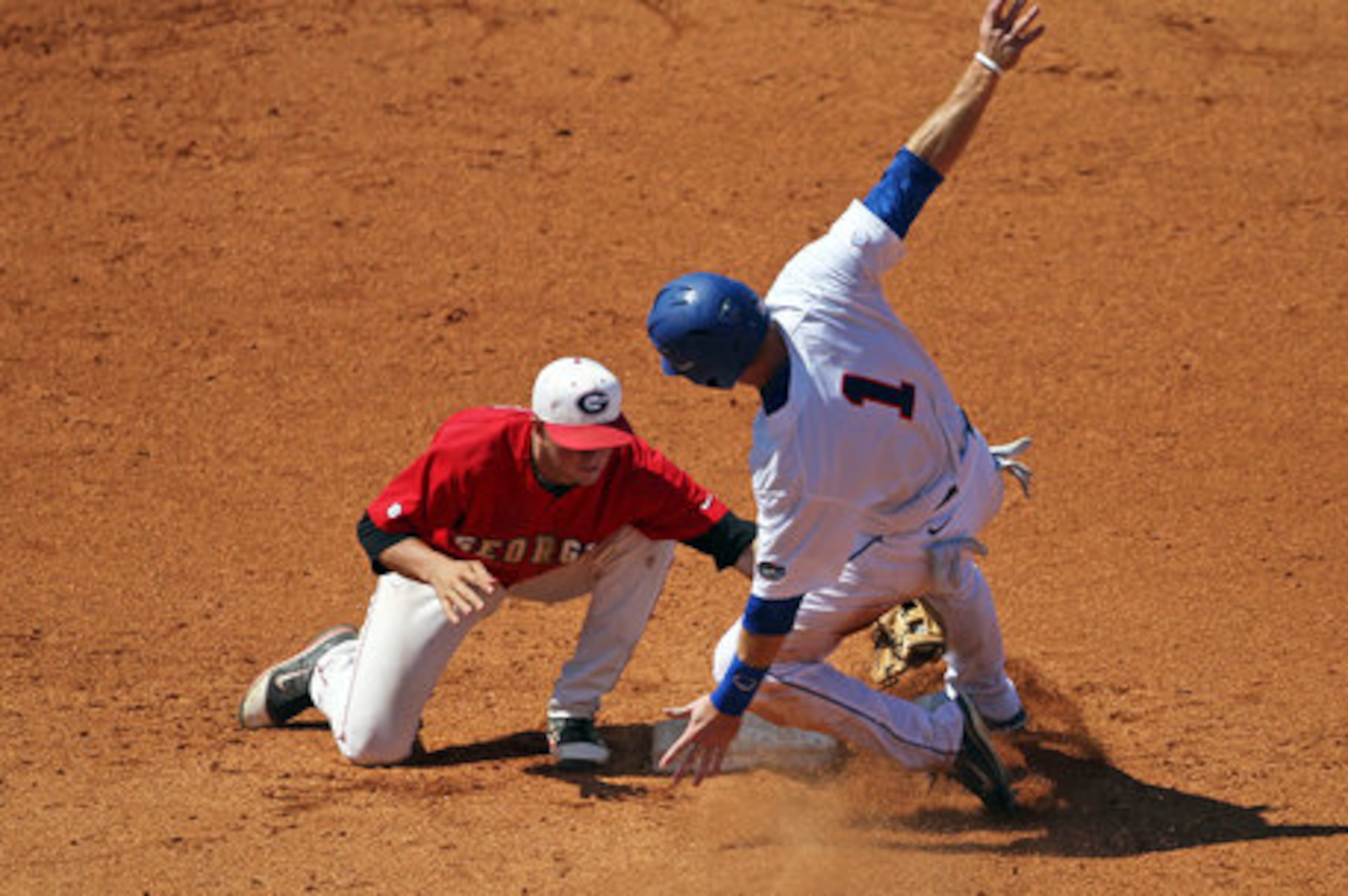Evan Gattis’ time as a Brave could be nearing an end

The Braves have reached the final month of a regular season that, for a team that has held a winning record since April 2, wobbled unduly. They’ve given themselves a chance to play beyond September; they’ve also been so disappointing as to make offseason change inevitable.
The change figures to begin with the everyday eight, which has — being polite here — failed to ignite. The Braves entered the weekend with an offense that ranked 29th among 30 big-league teams in runs, fourth in strikeouts and 25th in slugging percentage. (That last is no small thing, given that this lineup was built to hit home runs.)
If they do make the playoffs, it will be in spite of that batting order. The same lineup cannot be allowed to return intact. Even if the Braves find no team silly enough to take B.J. Upton off their hands, he won’t be the center fielder come Opening Day 2015. It’s also unlikely that Evan Gattis will be the starting catcher — or still a Brave.
This isn’t to lump the latter with Bossman Jr. or the jettisoned Dan Uggla. On the contrary, Gattis has been one of the happiest successes in franchise history. The saga of El Oso Blanco — he quit playing baseball, worked as a janitor and as a ski-lift operator, returned to baseball, was drafted by the Braves in Round 23 in 2010 and by 2013 had become an Atlanta folk hero — is stirring stuff. And there has been nothing mythical about his hitting: He has 42 homers in two seasons.
Trouble is, Gattis’ best position is batter. He became the No. 1 catcher as a bridge between the outbound Brian McCann and the heralded Christian Bethancourt, whose hitting was considered an issue until this season. That bridge has since been crossed.
Bethancourt hit .283 with 48 RBIs in 91 games at Gwinnett this summer; through 14 big-league games, he was hitting .278 with five RBIs. He’s never going to crush pitches like Mike Piazza, but he’s a better defender than Piazza ever was — or, more to the point, than Gattis will ever be.
If the strength of your team is pitching, you must afford those pitchers every possible edge. Gattis has made five errors and been charged with five passed balls in 84 games as a catcher. He has thrown out 22 percent of runners attempting to steal; the league average is 27 percent. There have been whispers that certain pitchers aren’t comfortable with his pitch-calling. (Greg Maddux didn’t like working with Javy Lopez, which opened a spot for Eddie Perez.)
Even on a team with substandard hitting, catcher is one spot where hitting can be secondary to defending. But the reason Gattis’ time as a Brave could be nearing its end isn’t so much what he can’t do as what he can bring in trade.
As the season has unfolded, the suspicion that Gattis is “an American League player” has become something close to a belief. He’s 28, which for a catcher is getting up there. (McCann was allowed to leave as a free agent at 29.) Via the DH, the AL can accommodate players who hit better than they field. The Braves appear to have found their catcher of the future in Bethancourt, which means they have a surplus.
Contrast this with the outfield, where uncertainty ranges from foul line to foul line. B.J. Upton is about to be dispatched or written off. Justin Upton and Jason Heyward can become free agents after the 2015 season. The Braves have no bright young outfield prospect poised to break upward. The Braves must find help this winter or face the real possibility of having to refill three positions at once.
We know from the B.J. Experiment the risk inherent in free agents. We also know that general manager Frank Wren is better at trades than signings. There’s a chance Gattis could be part of a package that includes the elder Upton, which would address two concerns. (I wouldn’t hold my breath, though.)
Gattis is the one everyday Brave who has immediate value and, being under club control through 2018, a friendly contract. As strange as it sounds, any remaking of this failed lineup figures to begin by trading one of the hitters who hasn’t failed.



